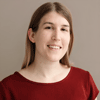2024 July 25
Re-introducing Participation Reports to encourage best practices in open metadata
We’ve just released an update to our participation report, which provides a view for our members into how they are each working towards best practices in open metadata. Prompted by some of the signatories and organizers of the Barcelona Declaration, which Crossref supports, and with the help of our friends at CWTS Leiden, we have fast-tracked the work to include an updated set of metadata best practices in participation reports for our members.






